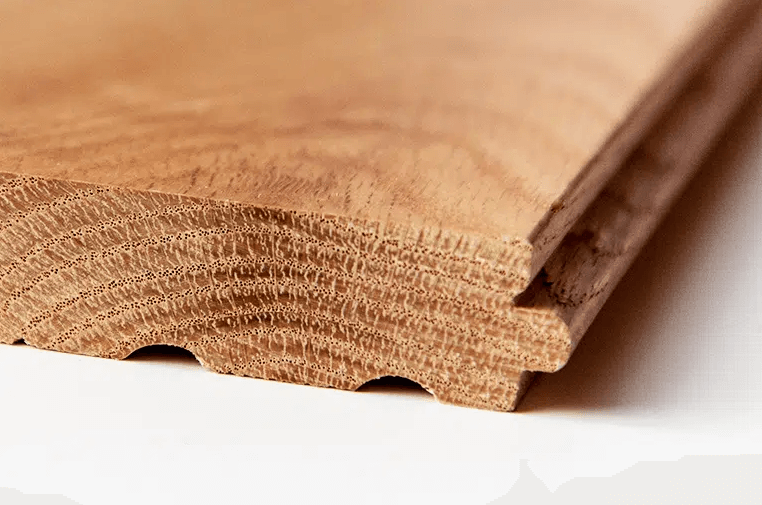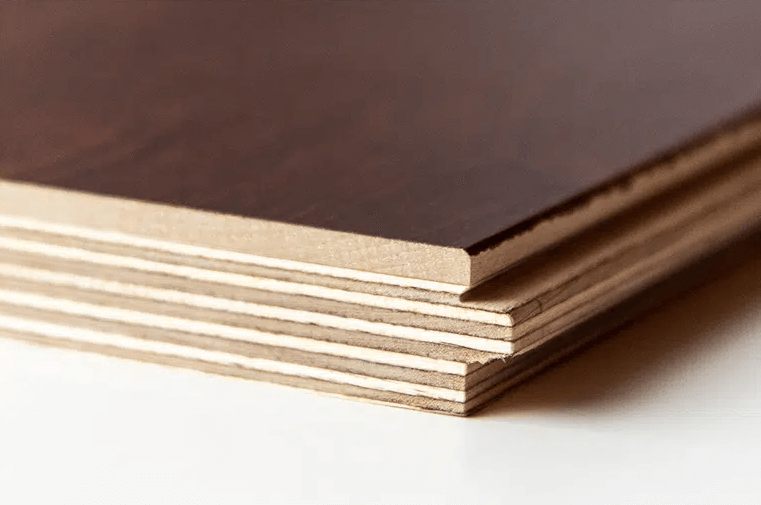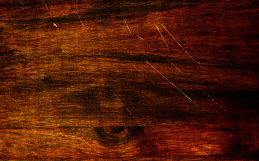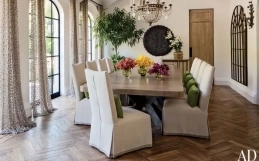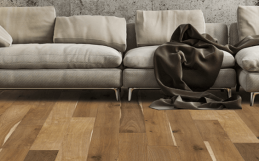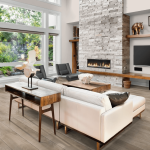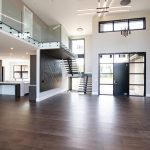Are you planning a home renovation and struggling to choose the right flooring material? It’s common to find yourself torn between solid hardwood and engineered hardwood. After all, both offer stunning flooring and long lifespans, making the decision even tougher. Continue reading to learn more about these two popular flooring options, and let us help you make the best decision for your home renovation.
Understanding Solid Hardwood
(Image Source: Superior Hardwood Flooring)
Solid hardwood is a timeless choice for homeowners seeking natural beauty and longevity. It is constructed from a solid piece of wood and milled into sturdy planks with tongues and grooves along the edges that interlock during installation.
Advantages of Solid Hardwood
- Longevity and Durability: Solid hardwood can last a lifetime. It can be sanded and refinished multiple times, extending its lifespan.
- Variety of Species: From oak to maple, there are many wood species and colours available to suit every design aesthetic.
- Increased Home Value: Hardwood flooring typically increases your home’s resale value due to its timeless appeal.
View this post on Instagram
Cons of Solid Hardwood
Solid hardwood tends to be more sensitive to humidity and temperature changes. This can lead to the wood warping, cupping, or even cracking over time. Therefore, it may not be the ideal choice for areas with high humidity, such as bathrooms or basements, or for regions with extreme climate variations.
Exploring Engineered Hardwood
(Image Source: Superior Hardwood Flooring)
Engineered hardwood is a modern innovation designed to combine the beauty of real wood with improved stability. It’s made up of a top layer of solid wood bonded to several layers of high-quality plywood. This type of flooring usually comes in wider planks than hardwood.
Advantages of Engineered Hardwood
- Stability: Engineered wood is less prone to shrinking and expanding due to changes in humidity and temperature, making it suitable for basements and kitchens.
- Versatility: Most engineered hardwood can be installed over concrete and radiant heating systems, providing more installation options.
- Sustainability: Given that it uses less solid wood, engineered hardwood is often considered a more eco-friendly choice.
View this post on Instagram
Cons of Engineered Hardwood
The cons of engineered hardwood are similar to that of solid hardwood. Both can scratch and dent due to day-to-day living on your floors. It’s how you care for your floors that can extend the life of your hardwood.
Watch for the thickness of the top wood veneer if you’re looking for an engineered hardwood floor to last a long time. This will give you the option to sand and refinish your floors.
Making the Choice
Your choice between hardwoods should be guided by your specific needs, home conditions, and personal preferences. Both types of flooring come in a wide variety of styles, colours, and finishes, such as wire brushed. Consider which fits best with your home’s design aesthetic.
Finally, it’s worth noting that, whichever choice you make, both solid and engineered hardwood offer an inviting look that will enhance the beauty of any home — and our professional team can install your new floors for you, so it’s one less thing to worry about.
Are you ready to make your choice, or do you still have questions? Visit our showroom to browse flooring styles and chat with a member of our team who can guide you through the selection process based on your preferences and budget.

